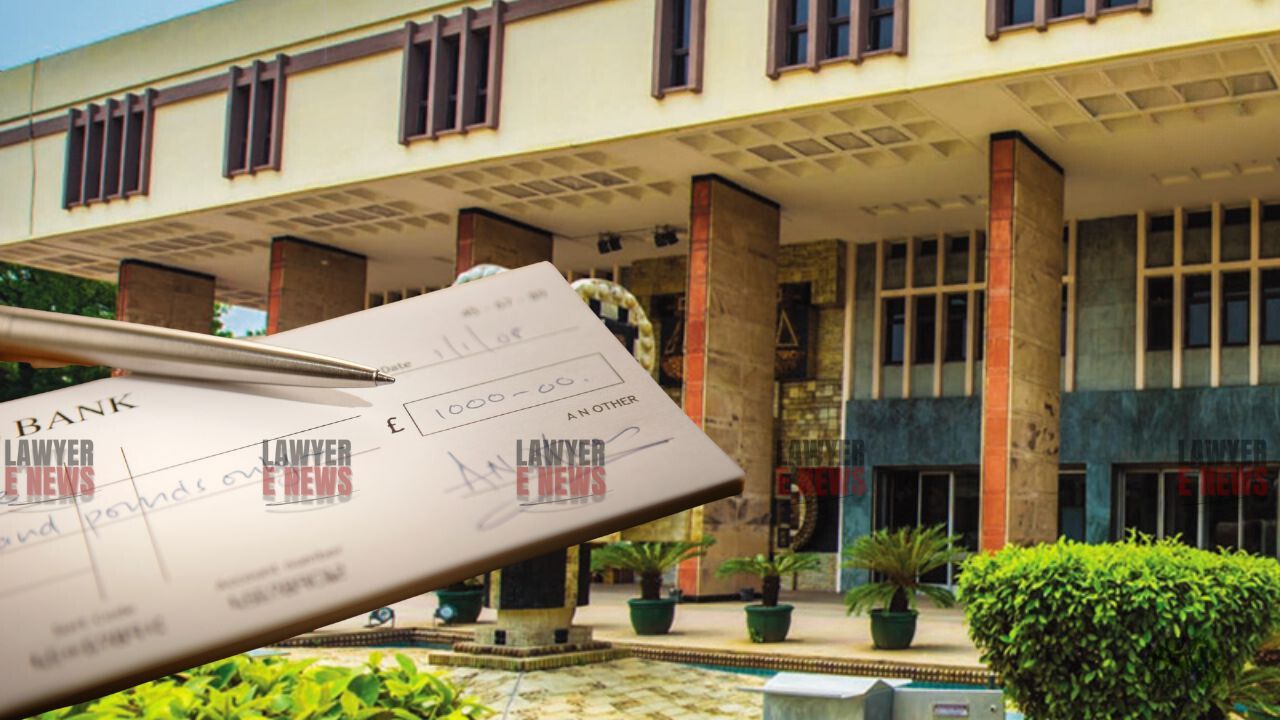-
by Admin
15 February 2026 5:01 PM



The High Court found no reason to overturn the trial court’s judgment acquitting the respondent in a Section 138 NI Act case, emphasizing the need for conclusive evidence and consistent testimonies. The Delhi High Court has dismissed a petition challenging the acquittal of a respondent in a cheque bounce case involving a sum of ₹4.25 lakhs, under Section 138 of the Negotiable Instruments Act, 1881. The Court upheld the trial court's decision, highlighting significant contradictions in the petitioner’s claims and the failure to provide substantial evidence to support the allegations.
The case revolves around a cheque issued by the respondent for ₹4.25 lakhs, allegedly to discharge a loan given by the petitioner in March 2011. When the cheque was presented for clearance on 15th March 2013, it was dishonored due to insufficient funds. The petitioner issued a legal notice, but the respondent did not make the payment within the statutory period, leading to the filing of the complaint. The respondent admitted his signature on the cheque but denied the existence of any loan from the petitioner. Instead, he claimed that he had previously lent ₹5.95 lakhs to the petitioner, which was settled by the petitioner through payments in August 2011.
The trial court observed that the petitioner’s case was riddled with inconsistencies. Initially, the petitioner claimed that the second amount mentioned in the settlement document was ₹375 instead of ₹3.75 lakhs, a claim the court found absurd, noting that it was improbable for a property handover to be delayed over such a small amount.
The respondent successfully rebutted the presumptions under Sections 118 and 139 of the NI Act. He demonstrated that the cheque in question was not issued in discharge of a legally enforceable debt but was taken without his consent from his office. The trial court found the respondent’s defense credible, supported by the testimony of a witness (DW2), who confirmed the settlement agreement and the payment of ₹3.75 lakhs as part of that settlement.
The High Court reiterated the principle that an appellate court should not overturn an acquittal unless the trial court’s findings are perverse or wholly unsustainable. In this case, the High Court agreed with the trial court's assessment, particularly the observation that the petitioner’s evidence was on "shaky ground" due to internal contradictions and the lack of corroborative evidence.
Justice Amit Mahajan, in delivering the judgment, stated, "The present case concerns the offense under Section 138 of the NI Act... The respondent has been able to satisfy the test of preponderance of possibilities and rebut the presumptions stipulated in Sections 118 and 139 of the NI Act".
The Delhi High Court's decision underscores the importance of credible evidence and consistent testimonies in cases under Section 138 of the NI Act. The judgment reinforces that in the absence of clear and conclusive evidence, the presumption of innocence remains paramount. This ruling serves as a critical reference point for similar cases, emphasizing the need for petitioners to present a coherent and substantiated case to secure a conviction.
Date of Decision: August 20, 2024
S.P. Dua vs. O.P. Dewan
